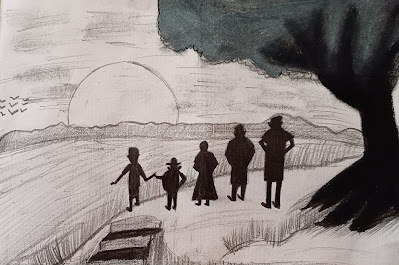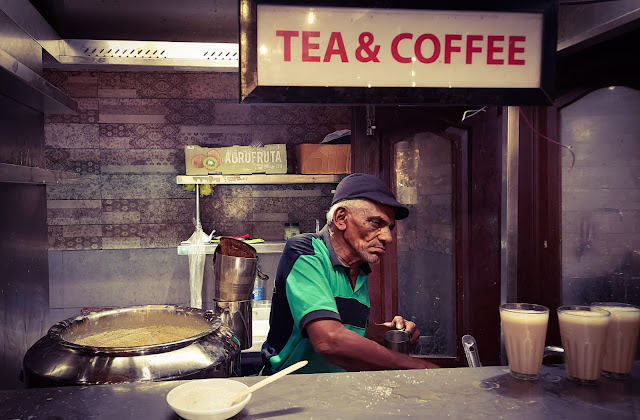Aboriginals of Australia - Mental Health and Well being
Australia’s aboriginals are Australia’s first people who have lived the continent over fifty thousand years. It is interesting to know and learn about the methods of Social and Emotional Well Being (SEWB) religiously followed by the aboriginals of Australia. It teaches us about their holistic view and approach towards mental health. The people prefer to remain connected to their family, clan and children and find that really helpful and extremely supportive in terms of boosting their mental health and emotional well-being.
Aboriginal Health and SEWB
Aboriginal health deals with physical, social, emotional, cultural and spiritual well-being of the people. If any of these factors are affected, it is considered as ill-health. SEWB of aboriginals are greatly related to how they are closely connected to their family, the environment they live in (nature) and the power of choice they exercise. Aboriginals prefer the usage of the term 'SEWB' instead of the other technical medical terms of 'mental health or mental illness' and scrupulously believes in a holistic view of health approach. Research done by various Australian Universities show that there are several causes of problems affecting the social and emotional well-being of aboriginals of Australia. Studies in 2020 shows that depression (52%) and anxiety (59%) are at much higher levels among aborigines than non-aborigines of Australia. One or more among the following risk factors contribute to causes of poor mental health among aborigines.
1. Grief or Loss – loss of connection with culture, land etc. due to previous invasions
2. Trauma-Trauma if unsolved can pass from generation to generation in the aboriginal context.
3. Domestic Violence- Violence of any form at any place can contribute to deteriorating mental health.
4. Substance Abuse- unaware about the side effects of substance abuse, its increased usage can lead to depression and other issues.
5. Family breakdown- issues inside families and separation
6. Racism and Discrimination- the discrimination faced by aborigines can have a huge impact on their mental well-being
7. Financial worries- lesser financial or job opportunities can increase tension and stress among the aborigines
A better understanding of the health and SEWB concept of Australian Aboriginal people were provided by the guiding principles set up by SEWB frame works. Some of the key points included are
1. Holistic view of health
2. Need for cultural understanding: the cultural beliefs and spirituality plays significant role in the lives of aboriginals. Their values are strongly tied to their culture.
3. Previous History of grief, trauma and loss and its impact on mental health: the families as well as members of families might have undergone intense trauma or grief or the unexpected loss of a dear one. Such pain can affect the SEWB of people.
4. Human rights recognition: for long years, the aboriginals were unaware of their human rights. In the present situation, majority of the aboriginal clans are aware of the importance of education and through education, their human rights awareness is taking place.
5. Importance of kinship: in aboriginal community of Australia, the family relationships, play key role in their SEWB.
Among Aboriginal and Torres Strait Islander people, there are historical, political and social determinants that increase the risk of depression and anxiety. These determinants include factors rooted by colonization contributing to intergenerational trauma, such as impacts of the Stolen Generations and removal of children, grief and loss, separation from culture, and racial discrimination.
According to the recent reports, the reasons of 5.4 % of Cardio Vascular diseases among the Australian aboriginals were contributed by anxiety and depression among the people. Anxiety and depression can also effect from various reasons ranging from a family history, personality type, physical health issues such as cancer or cardio vascular diseases, substance/drug abuse, sudden loss of family member due to death, imprisonment of family member, divorce or separation, domestic violence etc. Common symptoms of depression include poor sleep, less energy, difficulty concentrating, a lack of appetite, negative thoughts and suicide ideation. In order to provide clinical care and support to the aboriginals, it is important to acknowledge the role of their social and cultural protective factors.
Strength and Resilience among the Aboriginals:
Strong community governance, kinship, cultural and spiritual connectedness have all proven effective among Australian aboriginals in developing strength and resilience to psychological stress and depression. The traditional protective factors also help the aboriginal people to deal with mental health issues and includes factors such as :
- social support system- social connectedness and sense of belonging among the aboriginal group people/clan. Strong community governance and leadership qualities
- links to land/nature, culture etc.- the strong bond towards their own land and mother nature. Love towards nature and sense of protection. Cultural heritage
- spirituality and ancestry- Aboriginals are spiritual and respects their ancestry and traditions
- the passing on of cultural practices
Importance of Connections
Staying strong for aboriginals denotes physical well-being together with emotional and social well-being. It includes
• knowing and valuing the importance of family and children,
• bringing up children in an inclusive environment,
• strong connection between family members
• Knowing and valuing cultural and spiritual heritage
• Feeling of connection to their land, nature, culture etc.
 |
| Strength of Indigenous Australia - Family connections and SEWB among aborigines of Australia |
Risk factors of substance abuse/smoking and chances or presence of communicable diseases can weaken the physical well being of the persons – the one which is described as ‘Connection to body’ by one of the SEWB models. Proper intake of nutritious food, weight, age, illness etc. are some of the factors considered for ‘connection to body’ model in order to assess physical well being among the people.
• Being connected to our own people/ clan/community gives us the confidence of togetherness and healthier atmosphere for understanding problems of similar people. Moreover, it avoids the feeling of loneliness.
• It is always important to ventilate your stress rather than suppressing it. Suppressed emotions can increase the chances of affecting your mental health.
• Faith in God gives us a ray of hope that there is a way out and a solution for everything.
• Spirituality is one proven methodology of reducing stress and anxiety. Cultural enrichment and positive religious believes can boost mental health.
• If you are going through a problem you need to seek help and communicate it to others who can provide support.
Bottom line :
The main take away concepts from the lives of the incredible Australian aboriginals, which every human being across the world should consider in their own lives are
1) The importance of one being connected to the roots of one’s own community, clan, nature and environment.
2) The need of discussing your problems and ventilating stress by sharing your issues. Taking professional help when needed. Not hesitant on asking for help.
3) Spirituality or having faith in God or good will can assure mental strength and resilience
4) Having connectedness to spiritual strength and cultural heritage which is lacking among modern community and civilization.
5) The need for proper communication and inter personal relationships. In a highly competitive and independent world, the aboriginals are still bond to their nature of flourishing human relations and values.









Comments